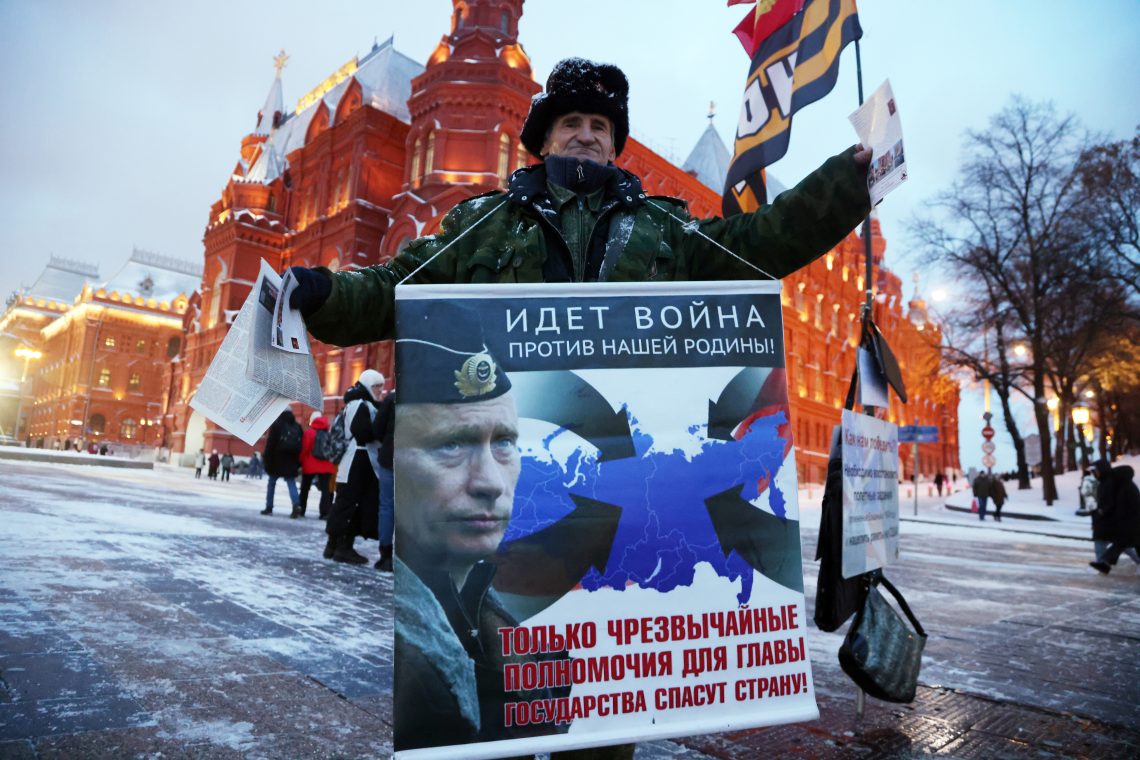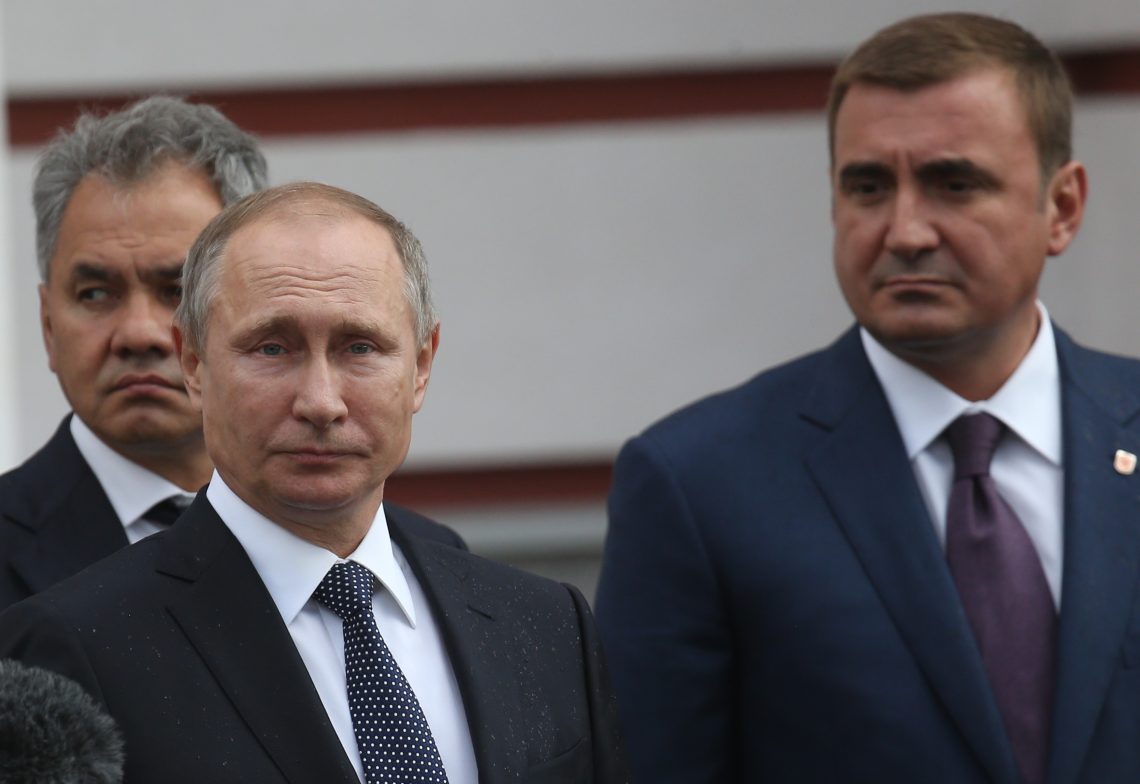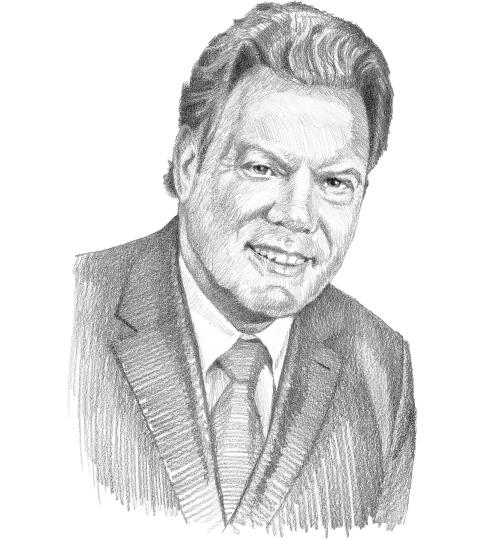Beyond Putin: Russia against Europe
The newly reelected Vladimir Putin is not going anywhere soon, nor is Russia’s war against Ukraine. That will likely mean a decades-long confrontation with the West and an eventual crisis of succession.

In a nutshell
- Vladimir Putin will continue the war until he can claim victory
- He has turned Russia against Europe for decades to come
- The country is heading for a succession crisis around the 2030s
Over two years after invading Ukraine, Vladimir Putin has been reaffirmed as president of Russia. He will surely win again in the next elections in 2030. Seemingly fit and healthy, Mr. Putin (born in 1952) looks set to lead the country through 2036. At that time, he will be only two years older than Joe Biden is today or than Donald Trump will be in 2028, at the end of a potential second term. Even then, President Putin is unlikely to retire. He will probably fiddle with the constitution again, as he did in 2020 to avoid term limits, and win reappointment in 2036.
Mr. Putin rules absolutely. He has no deputy, nor a Soviet Central Committee or a Politburo like the one that deposed Khrushchev and made life difficult for Gorbachev. The Russian Duma is an assembly of puppets whose strings are held firmly by the Kremlin, and the United Russia party is merely a fawning fan club.
The Russian leader exploits the tradition of legal nihilism: laws are vague and open to arbitrary interpretation. The judiciary is subservient to political power. Most executive branches of his government are above the law. Might trumps right, and political opponents are intimidated, silenced or killed.
War strengthens Putin’s position
The war in Ukraine is strengthening Mr. Putin’s power – favoring the executive, making the commander-in-chief irreplaceable and imposing unity on the nation. Criticism and opposition are denounced as treason and sabotage. Mr. Putin talks of scum and vermin. Censorship and propaganda flourish. He signals a readiness to negotiate while demanding that such negotiations be “realistic” and satisfy basic Russian demands. His rhetoric remains defiant. But how could he negotiate with Ukrainian President Volodymyr Zelenskiy, someone he continues to malign as a “drug-addled Nazi”? And who would trust the word of a man who has regularly torn up international treaties?
Mr. Putin talks of a “New Russia,” insisting that Ukraine is not a state and has no right to exist, and that there is no such thing as a Ukrainian people. He presents the war as an existential threat to Russia’s survival.
Notably, on March 2, former Russian Prime Minister Dmitry Medvedev presented a map of Europe that showed only a landlocked, rump Ukraine. Mr. Medvedev has also served as president of Russia, and is currently deputy chairman of the country’s security council. His presentation must have had the tacit backing of President Putin.
The same applies to the propaganda of Mr. Putin’s pit bulls, like TV commentators Vladimir Solovyov and Dmitry Kiselyov, and Margarita Simonyan, editor-in-chief of the state-controlled Russian broadcaster RT. They openly discuss nuclear attacks on NATO countries, potential targets for retaliation in Germany or France and notions of wiping out the United Kingdom.
Russia will remain isolated from Europe for years. The result will be growing hostility and deep suspicion.
President Putin is no madman; he has his own rationality. But even rational thinkers come to catastrophic conclusions if their assumptions contradict reality. The information reaching Mr. Putin rarely reflects a sober and balanced assessment of facts. Conspiracy theories are peddled by Security Council Secretary Nikolai Patrushev and by Federal Security Service (FSB) Director Alexander Bortnikov. A mania of persecution pervades their rhetoric.
Someone who considers themselves invulnerable and invincible, with history and providence on his side, is prone to making foolhardy decisions. Events like both world wars, the war in Vietnam and Saddam Hussein’s defiance of the United States underline the self-deluding psychology of war: losses are compensated by upping the ante. The higher the losses, the more ambitious the war aims needed to justify them.
Taking Putin at his word
The West failed to take President Putin seriously when, in both 2014 and 2021, he claimed that Ukraine was an integral part of Russia. It failed to take seriously his two draft treaties of December 2021 demanding a complete roll-back of NATO and a Russian droit de regard in all neighboring territories.
Mr. Putin’s fortunes are tied to the war. He can escalate it further to achieve some tangible success: the logic of “returning” territories to the motherland can be applied to other countries. He could cause mischief in Latvia, which is tightening control over its Russian-speaking population, and aim at reestablishing a land bridge between Russia and Kaliningrad. Belarus is bound to be absorbed by Russia after President Alexander Lukashenko’s demise. Mr. Putin could start a second front in Transnistria, or stir up hostilities between Serbia and Kosovo. He could fan tensions between North and South Korea. He could persuade Iran to escalate its hostilities against Israel, or encourage China to invade Taiwan.
In any of these situations, the U.S. would be forced to focus on other battlefields, narrowing its leeway for commitment to Ukraine. Meanwhile, President Putin keeps the nuclear threat on the table. If he were to detonate a nuclear device at the height of the presidential election campaign in the U.S., how would President Joe Biden react? To drag the country into a nuclear war on behalf of a faraway country is no recipe for winning votes – particularly if former President Donald Trump continues to brag that he could end the war within 24 hours.
Mr. Putin is preparing his people to think in terms of a “winnable” nuclear strike. In most NATO countries, nuclear escalation is regarded as the end of the world. This imbalance might tempt President Putin to disregard the threats meant to deter him.
No succession plan
President Putin presents himself as indispensable. “If there is Putin, there is Russia; if there is no Putin, there is no Russia,” Speaker of the Duma Vyacheslav Volodin once intoned. Mr. Putin is immoral, but not immortal. One day, a successor will have to be found; there is no crown prince. Most of Mr. Putin’s henchmen belong to his generation, meaning that succession will come with a generation leap. Any eventual successor is likely in his forties today.
The Soviet Union went through two succession crises: one after Stalin’s death in 1953 and one after Brezhnev died in 1982. Mr. Putin’s demise could trigger an even worse crisis because there is no precedent as to how a new presidential candidate should be selected. The next president will have to find arrangements with Russia’s tycoons and security services. From 2000 onwards, the siloviki increasingly called the shots. Most of those that wield effective power in Russia have an FSB background. The FSB owes no accountability; it is the new elite, a law unto itself. President Putin cherishes his KGB/FSB past; his first act after reelection was to visit FSB headquarters.
Russia’s security services and armed forces form a formidable base of power. Although they show unconditional loyalty to Mr. Putin, they have their own vested interests that any successor will have to respect. A successor will therefore most probably come from among the siloviki.

The next president will find it hard to terminate the war in Ukraine, if it is still ongoing. The collapse of the Soviet Union was hastened by the acknowledgement of defeat in Afghanistan. Nobody in Russia wants a replay of that. Even the late Boris Nemtsov and Alexey Navalny, the most prominent opponents of President Putin, held strong views about Russia’s place in the region, particularly on asserting its security interests and protecting native Russian speakers abroad.
To expect an overthrow of Mr. Putin is wishful thinking. The Soviet Union began to crumble over shortages of supplies. As long as the Russian leader is able to feed and entertain his people, he has little to fear. Russia’s economic and financial performance is impressive, scoring about 3 percent growth in 2023, more than most of Europe.
The war economy is fueling production. Generous pay for active soldiers and for the families those killed in combat has boosted purchasing power. Enormous financial reserves and continuing income from oil and gas exports allow President Putin to simultaneously step up military production and expand social spending. He will be able to maintain present levels of government expenditure for years to come. If it comes to the worst, he can simply print rubles – always a convenient prop for a tottering wartime government.
Ineffectual sanctions, in both directions
Russia remains able to tap vast government funds just as Western countries struggle with servicing their debt, which is gobbling up to 12 percent of their budgets. Debt levels in most Western countries have reached or crossed 100 percent of gross domestic product (GDP) and keep rising. Despite the war, Russia’s government debt is only around 18 percent of GDP – potentially a decisive difference.
Sanctions have not affected the political scope of Russia’s government. Suspension of oil and gas supplies to Western Europe have not triggered a major economic crisis there, because many European countries continue to obtain fossil fuels from Russia, while others buy it from third countries. Sanctions show little effect both ways.
A popular uprising or a military mutiny in Russia remain extremely unlikely. The fate of Wagner paramilitary chief Yevgeny Prigozhin and the brutally enforced discipline within the armed forces make such events improbable. As a seasoned former security officer, President Putin has taken plenty of precautions against any attempted assassination.
War will shape Russia’s future
The present war affects Russians’ mentalities, along with the permanent propaganda machine. Something like 60 percent of Russians support Mr. Putin, and about 40 to 50 percent support the war against Ukraine. More than 70 percent regard Crimea as historically part of Russia.
Sanctions stoke the feeling that the West is an alien, hostile force, and the celebration of the “Russian World” (russkiy mir) and Russian Orthodoxy deepen the chasm between Russians and Western liberals. Russia has a traditional narrative of regarding the West as materialistic, corrupt and decadent, in opposition to the redeeming purity of mind and the perennial selfless suffering of its own people. The old confrontation between Westerners and “Slavophiles” has erupted again, and the latter have won. Mr. Putin is appealing to a sense of victimhood, messianism and missionary zeal that permeates Russians’ self-perceptions. He feeds a toxic mixture of passive self-pity and jingoistic aggressiveness.
Russia will remain isolated from Europe for years. The result will be growing hostility and deep suspicion. It will take a generation or more to achieve normal relations of mutual respect.
Read more from Rudolf G. Adam
- Is more less? The challenges facing EU enlargement
- Water as a weapon
- Prospects for a multipolar world order
President Putin could end the war any time he chooses. Russia’s relations with its European neighbors, however, will not recover until a new detente becomes possible. Mr. Putin will be incapable of preventing Russia from declining in terms of technology, civilization and political standing. The brutalizing effect of the war – the cruelty, the innumerous war crimes – will leave a lasting imprint on the country’s young men. A number of countries continue to maintain normal relations, but Russia is left with few true friends. The Commonwealth of Independent States is breaking apart, and the Shanghai Cooperation Organization is almost paralyzed. Its alliance with China, once hailed as a friendship “without limits,” is for China a marriage of convenience, primarily designed to enhance its own position.
Citizens born after 1991 will effectively know only Putin’s Russia. They know that it is essential to remain on good terms with security forces; they are inured to arbitrary brutality, willful killings, extortion and blackmail; and they know that the law affords no protection and that judges are stooges of the Kremlin. Without exposure to objective information, the militarization of “patriotic” education will shape their views. They know that speaking their minds could endanger their lives and that only opportunism opens the road to advancement. Those fighting in Ukraine will return from the front traumatized and callous, their consciences blunted.
Scenarios
Three trends seem highly likely. First, Vladimir Putin will continue the war until he can claim that he has reached his strategic aims: international recognition of his annexations in eastern Ukraine, installation of a Quisling regime in Kyiv and a pushing back of NATO. Effectively this will mean that the war will go on for years, perhaps even a decade, though with reduced intensity.
Second, Russia is heading for a succession crisis in the 2030s. The security services will act as arbiters of power. Any successor to Mr. Putin will largely follow his line.
Finally, the cult of russkiy mir will turn Russians against the rest of Europe. Mr. Putin’s war will result in a Europeanized Ukraine and an Asianized Russia. The concept of a common space from Vancouver to Vladivostok is dead. A new Cold War is locking East and West in hostile confrontation. Decades will pass before it can come to an end, and there is no guarantee that it will conclude as peacefully as in 1991.
For industry-specific scenarios and bespoke geopolitical intelligence, contact us and we will provide you with more information about our advisory services.









